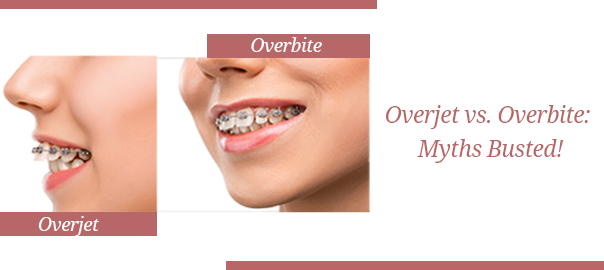
Overjet vs. Overbite: Understanding Dental Misalignments
Understanding Dental Misalignments
Many people confuse overjet and overbite, two common dental conditions that can impact oral health and overall confidence. Let’s dive deep into these misunderstood dental terms and separate fact from fiction.
What exactly is Overjet?
Overjet, often called “buck teeth,” is a horizontal misalignment where upper front teeth protrude outward. Key points include:
Normal tooth alignment shows upper teeth sitting about 2 millimeters in front of lower teeth
Overjet occurs when this horizontal separation exceeds 2 millimeters
Can make teeth appear to stick out or look crooked
Common Myths About Overjet
– Myth: Only children get overjet
– Reality: Overjet can affect people of all ages
– Myth: Overjet is just a cosmetic issue
– Reality: It can cause serious oral health problems
Exploring Overbite: More Than Just Appearance
Overbite represents a vertical misalignment where upper front teeth overlap lower front teeth. Important details include:
A typical overbite ranges from 2 to 4 millimeters
Over 30% overlap is considered problematic
Also known as “deep bite” or “closed bite”
Debunking Overbite Misconceptions
– Myth: Overbite doesn’t affect overall health
– Reality: Can cause speech difficulties and jaw pain
– Myth: Only severe cases need treatment
– Reality: Even mild overbites can benefit from intervention
What Causes These Dental Misalignments?
Multiple factors contribute to overjet and overbite:
1. Genetic predisposition
2. Jaw size variations
3. Childhood habits like:
- Thumb sucking
- Prolonged pacifier use
- Tongue thrusting
4. Tooth loss
5. Abnormal jaw development
Potential Health Implications
Both overjet and overbite can lead to:
- Difficulty chewing
- Speech challenges
- Increased risk of tooth damage
- Chronic jaw pain
- Potential sleep apnea risks
- Reduced self-confidence
Treatment Options
Professional Interventions
- Orthodontic braces
- Dental aligners
- Surgical corrections
- Customized treatment plans
Prevention and Early Detection
- Regular dental check-ups
- Early childhood intervention
- Addressing habits that contribute to misalignment
When to Seek Professional Help
Consult an orthodontist if you experience:
- Persistent jaw discomfort
- Difficulty speaking clearly
- Noticeable tooth misalignment
- Challenges with eating
Summary
Understanding overjet and overbite goes beyond cosmetic concerns. These dental conditions can significantly impact oral health and overall well-being. With proper diagnosis and treatment, individuals can achieve not just a straighter smile, but improved functional health.
Leave a Reply
Leave a Reply
Explore More Similar Posts
Explore More Blogs


Leave a Reply